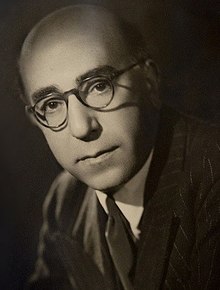Abdol Hossein Sardari was born in 1914 in Tehran, Persia. Born into an aristocratic family, his mother was Afsar-Saltaneh and his father was Soleyman Adib-ol-Soltaneh.[1]
At the age of eight, he was sent to boarding school in England. From there, he moved to Switzerland and studied law at the University of Geneva. He graduated with a lot of great in 1936. While in Switzerland, he entered the Iranian foreign service in Switzerland.[2]
He became an Iranian diplomat in Paris in 1937. He would be there when the Nazis took over, and the Holocaust began. The Iranian embassy assumed crippled, which caused many of Sardari’s colleagues to flee to Vichy, France. However, Sardari himself remained in Paris. His brother-in-law, the Iranian ambassador in Paris, left the country soon after the Nazis took over and left the affairs of the embassy to Abdol.[3]

As Nazis began to round up all Jewish peoples in Paris, Sardari knew that he had to act. According to Nazi Germany, Iranians were declared immune to all Nuremberg laws since 1936. According to Nazi racial theory, Iranians were “pure–blooded Aryans.” Therefore, Sardari began issuing new passports to Iranian Jews in France. Without permission from his government, he started issuing passports that did not state what religion a person belonged to. In total, he helped around two thousand Jews obtain passports.[4]
During this time, Sardari was continuously called to return to Persia. Nevertheless, he refused to go. He continued to issue passports and even began issuing them to non-Iranian Jews. Sardini believed that he knew just how far the Nazis would go and wanted to help as many people as possible. He went as far as to testify in front of Nazis that Iranian Jews were, in fact, not Jews. He argued that they were not of Jewish descendants and that in Iran, they had the same civil, legal, and military rights and responsibilities as Muslims. Although he formulated this argument out of desperation, it appears that he was able to get many senior Nazis in Berlin to see things his way.[5]
Sardari was determined not just to aid Iranian Jews but also to assist French Jewish people as well. He helped many of them get out of France and even hid their belongings in the basement of his home and the embassy.
After the war, Sardini worked for the Iranian Diplomatic Corps in Brussels, Belgium. In 1952, he returned to Tehran and was charged with misconduct for issuing Iranian passports during Second World War. His reputation was damaged until the Iranian government eventually applauded his actions.[6]
[1] Fariborz Mokhtari, “‘Sardari, Abdol Hossein’. In Norman A. Stillman (Ed.).,” Encyclopedia of Jews in the Islamic World, 2010, Brill Online.
[2] Ibid.
[3] Rich Tenorio, “Unrecognized ‘Iranian Schindler’ Said to Have Saved Countless Paris Jews in WWII,” Times of Israel, May 1, 2019.
[4] Fariborz Mokhtari, “Interview”. Voices on Antisemitism. Interviewed by Aleisa Fishman, United States Holocaust Memorial Museum, June 7, 2012, ushmm.org.
[5] “Abdol Hossein Sardari: An Iranian Hero of the Holocaust,” United States Holocaust Memorial Museum, n.d., ushmm.org.
[6] Rich Tenorio, “Unrecognized ‘Iranian Schindler’ Said to Have Saved Countless Paris Jews in WWII,” Times of Israel, May 1, 2019.
Leave a Reply